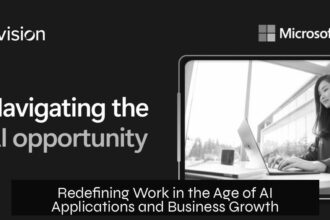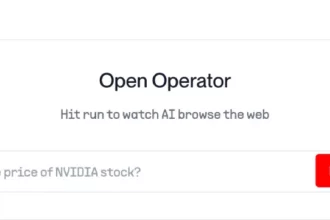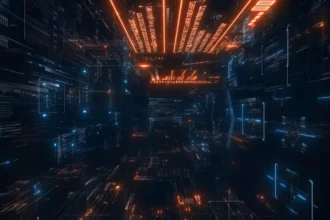Table of Contents
ToggleOpenAI Wants to Get College Kids Hooked on AI
OpenAI is actively pushing to make ChatGPT an essential part of college life, aiming to integrate the AI deeply into the student experience on campuses nationwide. They envision ChatGPT not just as a tool for assignments but as a personalized, multifaceted assistant for learning, career help, and academic support.
OpenAI’s College Strategy
OpenAI seeks to position ChatGPT as a default student resource, similar to student email accounts. New students would get personalized AI accounts on day one. This AI would serve multiple roles:
- Personal tutor offering custom academic assistance
- Teacher’s aide helping instructors manage course demands
- Career assistant supporting job searches and resume advice post-graduation
This comprehensive vision aims to embed AI throughout the college journey, transforming how students learn and interact with educational content.
Early Adoption at Universities
Some institutions have already signed up for OpenAI’s premium ChatGPT Edu. Examples include:
- University of Maryland
- Duke University
- California State University
These universities are integrating ChatGPT into various educational processes, testing AI’s potential in tutoring, administration, and student support services.
Competition in Higher Education AI
OpenAI is not alone in targeting college students. Competitors include:
- Elon Musk’s xAI: Offered free access to its Grok chatbot during exams.
- Google: Provides free access to its Gemini AI suite through the 2025-26 academic year.
Unlike competitors offering standalone chatbots, OpenAI pushes for AI embedded within campus systems, linking directly with university infrastructure and student services.
Concerns About AI in Higher Education
Critical Thinking at Risk
Universities initially resisted AI due to cheating worries. Now many embrace it, but there is growing evidence of downsides. Studies show reliance on AI can diminish critical thinking skills, which are vital outcomes of higher education.
Cognitive Offloading
Students may use AI as a shortcut, skipping complex mental work. This “offloading” can hamper deep learning and analytical skills, undermining the university’s goal to develop independent thinkers.
Misinformation and Errors
Research testing AI against a patent law casebook revealed troubling results. AI models, including OpenAI’s GPT, produced false information, invented cases, and made substantive errors. Approximately 25% of AI responses were deemed “unacceptable” or harmful for learning purposes.
Impact on Social Skills
The increasing reliance on AI chatbots may reduce face-to-face interactions that bolster social competence. Personal engagements, such as working with tutors, promote emotional intelligence and trust. Chatbots cannot replicate this human connection.
Human Interaction and Community
Universities investing heavily in AI risk underfunding initiatives that foster real human contact. Social interaction builds community and belonging, key elements of a fulfilling college experience, which AI currently cannot replace.
Summary of Key Takeaways
- OpenAI aims to make ChatGPT an integral, personalized AI assistant for college students.
- Some universities like Maryland, Duke, and CSU already integrate ChatGPT Edu into education.
- Competitors like xAI and Google offer AI tools but lack deep campus integration.
- Evidence shows AI reliance can erode critical thinking and promote cognitive shortcuts.
- AI models sometimes produce inaccurate or false information harmful to learning.
- Heavy AI use risks weakening social skills and reducing human interaction on campuses.
- AI currently lacks the emotional intelligence and connection that human tutors provide.
OpenAI Wants to Get College Kids Hooked on AI: Revolution or Risk?
OpenAI’s grand plan is to make ChatGPT as common on college campuses as your campus ID card or your student email. They envision a future where every student logs in to their “personalized AI account” the moment they set foot on campus. This AI companion won’t just answer your random midnight questions; it aims to serve as your tutor, teacher’s aide, and career assistant all rolled into one sleek, digital buddy.
The idea sounds futuristic — almost like having Jarvis from Iron Man in your pocket. But is this push a breakthrough in education, or a shortcut that might sneakily hollow out the core university experience? Let’s unpack what OpenAI’s move means, and why it has universities buzzing, skeptics pondering, and students (probably) logging on.
The AI Invasion of Campus Life
OpenAI is already making strides. Schools like the University of Maryland, Duke University, and California State University have signed on for ChatGPT Edu, the premium service tailored for academic settings. The chatbot is weaving itself into writing labs, tutoring centers, and even career services. The promise? Instant help at every turn. Stuck on a thesis? ChatGPT’s got your back. Job hunt stress? Your AI career assistant can brainstorm resumes and prep you for interviews.
But OpenAI isn’t the only player eyeing college students. Elon Musk’s xAI gave students free access to their chatbot Grok during the tense exam season, while Google offers the Gemini AI suite free through the 2025-26 academic year. These freebies are attractive, but OpenAI’s edge lies in true integration with college infrastructure — turning ChatGPT from a side tool into a core part of education.
AI Tutors or Critical Thinking Crutches?
This is where the excitement meets a reality check. Let’s be honest: relying on AI to do the thinking can easily turn into a crutch. Studies have shown that frequent users of AI tools tend to offload tough mental tasks, opting for quick answers rather than developing deep knowledge. The risk? Universities could be nurturing students who can Google or ask a chatbot but struggle with genuine analysis or problem-solving.
One study published earlier this year found that dependence on AI erodes critical thinking — the very skill that higher education is supposed to sharpen like a fine pencil.
“AI models often produce false information, hallucinate nonexistent facts, and make errors that could be harmful for learning,” researchers warned after testing GPT on a patent law casebook. The results were “unacceptable” nearly 25% of the time.
Imagine getting legal advice from a chatbot that cites fake cases. Not exactly the recipe for academic success.
When the Chatbot Doesn’t Know What It Doesn’t Know
AI’s tendency to hallucinate is especially dangerous in academic settings, where accuracy matters. A chatbot may confidently present wrong information, and students trusting these outputs without skepticism risk building misconceptions.
That makes human teachers and tutors irreplaceable, not just for knowledge but for critical evaluation and correction. The emotional and cognitive education a student gains from human interaction isn’t just “nice to have”—it’s essential for forming well-rounded thinkers.
The Silent Side Effects: Social Skills and Community
Here’s a twist many overlook: as AI chatbots become deeply embedded in campus life, students might lose out on vital social experiences.
Going to a tutor isn’t just a one-way information transfer. It involves conversation, trust-building, and emotional intelligence. These interactions knit the social fabric of campus, creating a sense of belonging and community. Chatbots? They simply fling text responses without empathy or connection.
Universities investing heavily in AI might unintentionally divert funds away from programs that foster human connection — clubs, peer mentoring, face-to-face tutoring. When there’s less human interaction, loneliness and isolation can creep in, dangling a hidden threat amid technological advances.
Balancing Tech Magic with Human Touch
Should universities run screaming from AI? Probably not. The benefits are obvious:
- Instant access to information and24/7 availability.
- Personalized help tailored to individual learning paces.
- Support for career planning and skill-building beyond academics.
But should students—and schools—trust AI blindly? Absolutely not.
OpenAI’s vision is bold and promising. A future where every student walks into campus with a personal AI assistant could redefine education. But this future demands moderation, critical awareness, and safeguards against substituting AI for real learning and human interaction.
Tips for Students Navigating the AI Wave
- Use AI as a Tutor, Not a Crutch. Ask ChatGPT for explanations, but tackle problems yourself to strengthen your brain muscles.
- Check AI outputs. Always verify information, especially in legal, scientific, or historical subjects prone to AI hallucinations.
- Don’t skip human help. Attend tutoring sessions and office hours. Conversations build understanding and social skills.
- Balance AI with social involvement. Join clubs and study groups to nurture community bonds.
The Bottom Line
OpenAI’s push to get college kids hooked on AI is more than just a tech fad. It’s a shift toward an AI-integrated education model that promises personalized support but risks cutting corners in critical thinking and social connection.
Ultimately, the power lies with students and educators to wield AI wisely — embracing its convenience without surrendering the irreplaceable human elements of learning and growth.
What do you think? Will AI chatbots be the academic BFF you always wanted or a shortcut that cheats you out of true learning? The future’s here, and it’s asking.
What is OpenAI’s main goal in introducing ChatGPT to college campuses?
OpenAI aims to make ChatGPT a regular part of college life. They want each student to have a personalized AI account from day one. ChatGPT would act as a tutor, teacher’s aide, and career helper.
How are universities currently using ChatGPT in education?
Some schools like the University of Maryland and Duke University have signed up for ChatGPT Edu. They are starting to embed it into classes and student services to support learning and career planning.
What are the risks of relying heavily on AI like ChatGPT in college?
Using AI too much can weaken critical thinking and encourage shortcuts in learning. AI can also produce false information and reduce chances for real human interaction.
How does OpenAI’s approach differ from competitors like Google and xAI?
Google and xAI offer free AI tools alongside education but not deeply integrated. OpenAI seeks to embed ChatGPT directly into university systems to become part of daily student life.
Why might AI chatbots harm students’ social skills and community feeling?
Chatbots lack emotional intelligence and don’t build trust like human tutors do. Overreliance on AI could reduce meaningful social interaction and weaken the sense of belonging on campus.





